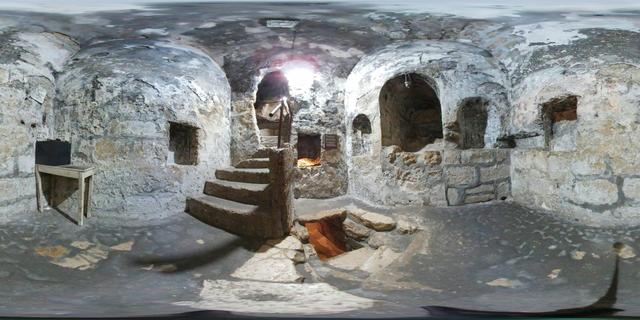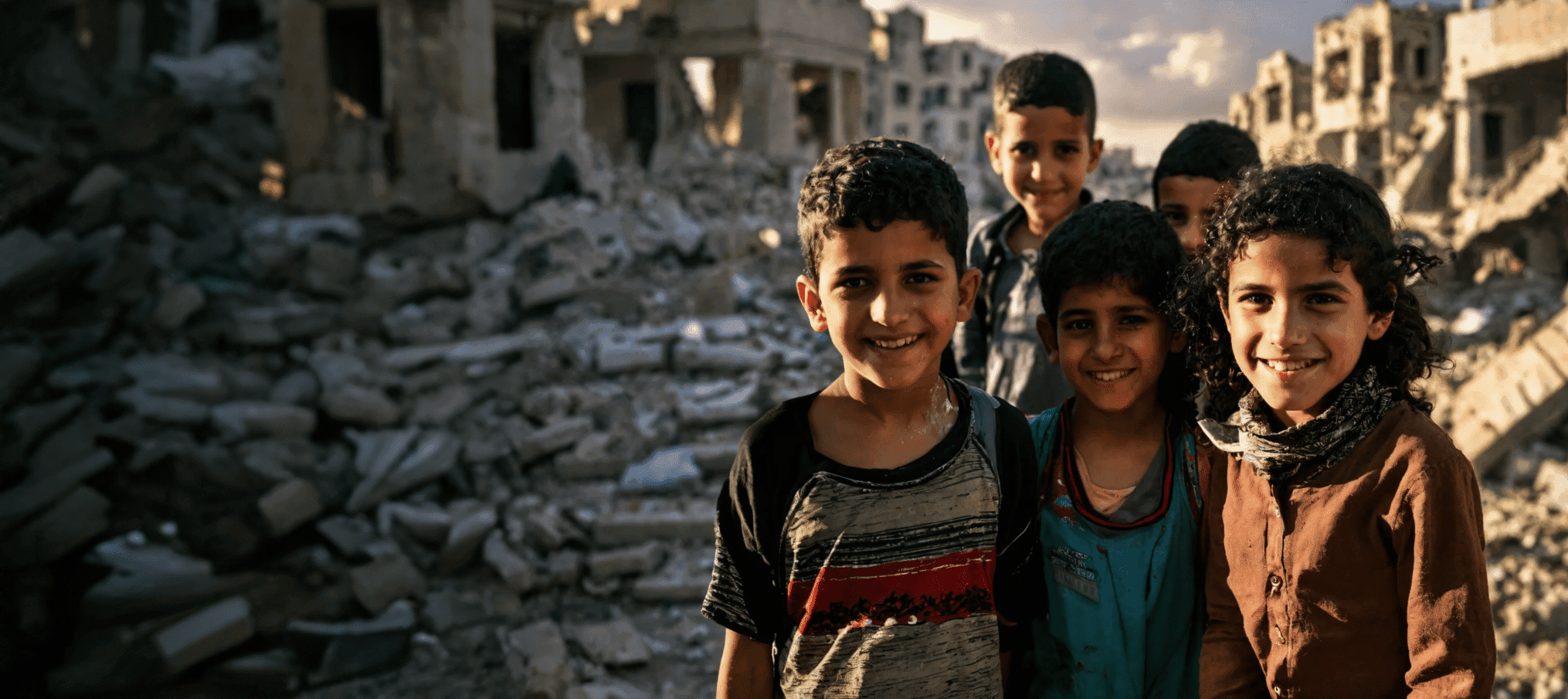Bethlehem. The hot August sun burns the streets and buildings, the war that always looms on the horizon becomes tremulous under the heatwave. The sun beats down against the windows of the Dar Al-Majus; inside, sitting on a colorful carpet, the children of the city listen enchanted to the folk tales of their land, which Tali reads from the large book she holds in her hands.
Reading aloud
"The idea of offering the children of Bethlehem the reading of Palestinian folk tales aloud came to us during the war period," says Tali. "We organized a workshop for children between the ages of 5 and 8, focused on courage and the importance of cultivating the bond with one's land and identity. The Dar Al-Majus, the cultural center of Pro Terra Sancta in Bethlehem, is the perfect place to host an activity of this type: it is an ancient building reborn through restoration, which has however preserved its historical soul. In the same way, ancient fairy tales preserve the history of the peoples they tell about."
Tali is a girl from Bethlehem who deals with activities dedicated to children, especially artistic. "After telling the story, and after discussing its meaning and suggestions all together, we devote ourselves to manual work such as drawing or the use of colors. These are activities that I specially design myself, in order to link them to the fairy tale of the day, involving the characters and places."
The stories Tali tells come from the book Speak, bird, speak again: Palestinian Arab folktales, published in 1989 in English. The title translates as "Sing, little bird, sing again: Palestinian Arabic folk tales", and collects forty-five folk tales handed down since the dawn of time.

Identity through folk tales
"I chose this book because it is a precious form of oral artistic heritage. These stories are ancient, handed down orally over time from generation to generation: they must not die, they cannot be erased." Tali firmly affirms the need to keep these stories alive, to maintain the bond that unites Palestinians with each other and with their past: "It is a heritage that belongs to the Palestinian community: it must remain imprinted in our minds and conscience."
The same cohesive and identifying force of this cultural operation is highlighted in the introduction to the book. The volume aims to provide the reader with an adequate anthropological framework , to allow him to better enjoy the stories he is going to read and allow him to grasp as much as possible of the culture of origin of fairy tales and their original meaning. Alan Dundes, the American folklorist who signs the introduction, explains that "These stories belong to a people, the Palestinian Arabs. Whatever one's opinion on the establishment of the state of Israel in 1948, there is no denying that the event caused a remarkable dislocation and fragmentation of the Palestinian Arab people. […] One fact is indisputable: there was once an area of the world called Palestine, where the Arab inhabitants had – and still have – a distinctive culture of their own. It is that culture that is so beautifully preserved in the magical stories contained in this volume."

Imagination that spans the centuries
The book collects forty-five Palestinian folk tales told by seventeen local storytellers, a varied sample of tellers who, going back in time, told stories to their families or their communities. Reading it transports us to an evening in the East, listening to the voice of the storyteller – or storyteller – in the dim light of an oil lamp; in fact, it is often women who play the role of narrators – who modulate formulas and repetitions aimed at increasing the listener's suspension of disbelief, distancing themselves from everyday reality.
Children go to Dar Al-Majus during the day, and the light that is added to the sun does not come from an oil lamp, but from electricity; yet the magic spreads through the air in the same way. "I observed the pleasure of the children in listening," says Tali, "their desire to sit down and actively interact with the stories. A spark lights up in their eyes, while laughter and exclamations of surprise accompany the twists and turns of the narrative."
"These folk tales, full of wizards, formulas and ancient spells, stimulate their imagination, offering a temporary escape from the terrible reality of war and the frightening news they have to hear every day. Sometimes I had to change some words," adds the girl, "because they were too strong or too explicit for today's society, for today's children." Tali explains that this is the reason why Speak, bird, speak again was censored in 2007 by the Palestinian Authority, which briefly withdrew it from libraries and schools that had adopted it as a textbook.
"However, I think it was a wrong decision, since the book was written and compiled with great authenticity. In the past, our grandmothers and mothers told these stories at family gatherings, and the terms used were commonly accepted among them. It is the mirror of a culture that, while changing over time and adapting to the twists and turns of history, remains in its essence and in its role as representative of a people that today is in danger of disappearing."
Educating children to love fairy tales means fighting against the disappearance of an identifying popular culture; also thanks to Tali and the entire Dar Al-Majus these Palestinian fairy tales will not die, but will continue to make their voices heard "as long as the birds continue to sing".
The Story of Jummez Bin Yazur, Chief of the Birds
To conclude, here is an excerpt from one of the popular Arab folk tales of Palestine: it is the story of Sitt il-Husun, a young and beautiful girl who falls in love with Jummez, Chief of the Birds, and faces a thousand adventures and vicissitudes in order to keep him with her. Enjoy the reading!





























